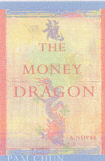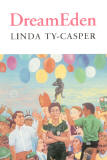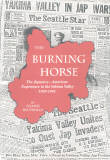|
The AACP Newsletter |
||
| Since 1970 | Asian American Curriculum Project, Inc. - Books for All Ages | June 2002 |
AACP Heads to JACL Biennial National ConventionAACP will be an exhibitor at the Japanese American Citizens League's 2002 Biennial National Convention in Las Vegas from June 27th to June 29th. To read more about this event, go to the JACL website at http://www.jacl.org/convention.html.
If you are going to this event, we hope to see you there. If you know of somebody that is going to the event or lives in the Las Vegas area, tell them to drop by our booth. |
||||||||||
Other Up Coming EventsHere are some other events that AACP will soon be attending. Invite us to your events.
Writer's CornerThank you William Wong for sending us your web address. As a result of your request, we've added a section to our Link Page just for authors.If you are an author and would like us to link to your website, email your website address to us at aacpinc@asianamericanbooks.com.
|
AACP is Holding a Pre-Summer SaleEverything that is in stock at our store is on sale through Saturday, June 22. All merchandise is 20% off - including our books, dolls, cards, kites, origami supplies, misc. arts, crafts, and games.If you shop on our website the displayed prices reflect our regular price. The discount will be shown when you place your order. Any out of stock items are not subject to the 20% discount. After we receive your order, we will notify you as to whether the item is in stock or not. Give Us Your FeedbackPlease feel free to send us your reviews, comments, and book suggestions. You can contact us at -aacpinc@asianamericanbooks.com
Leonard Chan |
|||||||||
|
|
||||||||||
Asian Americans Should Get On the Bus
|
||||||||||
|
Being a part of AACP has made me acutely aware of the history of the redress movement for Japanese American WW II internees. Edison Uno, a founder of AACP, was one of the first individuals to fight for this cause. That is why I watch with interest another redress movement - that of African Americans for the historical crime of slavery in the United States. The book "Born In Seattle" that we are featuring in this month's newsletter and the various news stories about the African American redress movement has made me look much more closely at this new redress movement. One interesting editorial on the subject that I found is on the Seattle Times newspaper website. The negative readers' responses (which illustrate the great controversy surrounding this issue) can also be found at this website. Unlike the Japanese American redress, the African American redress movement faces a major hurdle presented by time. Can and should injustices from several generations past be prosecuted and corrected for in the present? If so, then there are some thorny issues to resolve, such as who should pay, who should receive, the amount of compensation, and even the willingness of potential recipients to accept compensation. There were many injustices committed throughout American history - such injustices as the genocidal treatment of Native Americans and the inhuman treatment of Asians during the building of this country to name a few. |
The movement for African American redress would gain more interest and perhaps support if it were widened to include all such instances of injustice in our history. Without a wider focus, the African American redress movement might stand little chance of success of any kind. If such a progressive area as Seattle could produce such a negative response, how can the issue possibly see the light of day in the rest of the country? Injustice and evil forms a part of the tapestry of American culture and society along with the good. Let us recognize this fact and stop wasting endless amounts of time arguing cases of whose grandfather wronged whom. At the start of any civilized discussion it must be recognized that injustices were committed in the past and that many still suffer from the results, only then can we move forward to finding solutions. How should Asian Americans join the debate and help overcome the inequalities we have today regardless of the origin of those inequalities? Isn't it about time that Asian Americans get on the bus and add our own views and history to America's education? What do you think about redress and what are your solutions? To Be Continued |
|||||||||
| |

|
The Money DragonIn this stunning work of Chinese-American fiction, Pam Chun brings to life the story of Lau Ah Leong, the Money Dragon, the legendary founder of Honolulu's Chinatown. The great-granddaughter of Ah Leong, Chun reaches deep into her family history to deliver an account that depicts the tumult and opportunity that occurs when the deep-rooted traditions of the Chinese people conflict with the new American culture.
View Additional Information
|

|
Born In Seattle
Robert Sadamu Shimabukuro, using hundreds of interviews with people who lived in the internment camps, and with people who initiated the campaign for redress, has constructed a very personal testimony, a monument to these courageous organizers' determination and deep reverence for justice. Born in Seattle follows these pioneers and their movement over more than two decades, starting in the late 1960s with second-generation Japanese American engineers at the Boeing Company, as they worked with their fellow activists to educate Japanese American communities, legislative bodies, and the broader American public about the need for the U.S. Government to acknowledge and pay for this wartime injustice and to promise that it will never be repeated. |

|
Dream EdenLinda Ty-Casper combines historical objectivity with convincing moral authority and provides readers with a remarkable sense of people and place, a leap of insight into what it is to live in the Philippines today at a critical juncture in the nation's history. Research in newspaper archives and interviews with participants in the 1986 revolution inform her narrative. The events are actual; her fictional characters are believable; her prose is sardonic, compassionate, and virtuosic.
View Additional Information
|

|
The Burning Horse
Professor Thomas Heuterman, distinguished member of the faculty of the Edward R. Murrow School of Communications at Washington State University, uses the newspaper accounts in the Washington newspapers of the period to demonstrate a growing, systematic, institutional racism directed against the Japanese-American communities of Wapato and the surrounding area. Alongside the accounts of protests against the presence of Japanese tenant farmers on land the American Legion misguidedly thought should go to veterans, there are stories of Japanese-American contributions to the social and economic life of the region, as well as their efforts to share their rich cultural heritage with their neighbors. |
Copyright © 2002 by Asian American Curriculum Project, Inc. (a non-profit organization since 1970)
Visit our website at AsianAmericanBooks.com
To unsubscribe simply reply to this email and type "REMOVE" in the subject line.